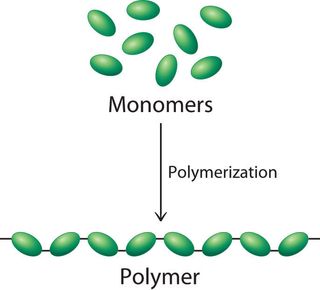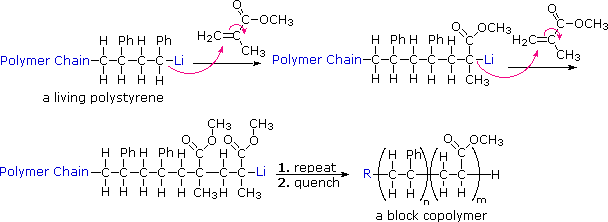Leading Uses of Polymers: Enhancing Everyday Products
Leading Uses of Polymers: Enhancing Everyday Products
Blog Article
Checking Out the Varied Applications and Advantages of Polymers in Different Industries
Polymers, with their varied series of buildings and performances, have actually ended up being vital in different sectors, each enjoying distinct take advantage of their application. Polymers. From boosting security and efficiency in the vehicle field to revolutionizing clinical tools in the health care industry, polymers play a pivotal duty. Furthermore, their eco-friendly nature is modifying the landscape of sustainability methods. As we explore the midsts of polymers in electronic devices, we discover sophisticated innovations, while their structural stability transforms the realm of construction and facilities. The prevalent influence of polymers throughout industries is a testament to their versatility and flexibility, shaping the future of many industries.
Automotive Industry Applications
Polymers play a critical duty in enhancing the efficiency and durability of numerous components within the auto field. These versatile materials are extensively used in the production of different parts, ranging from interior components to under-the-hood applications. One famous use of polymers in the automotive market remains in the manufacturing of light-weight elements. By replacing traditional steel parts with polymer-based options, lorries can attain better gas efficiency without endangering on toughness or safety and security.

Health Care Industry Benefits
In numerous medical care applications, the advantages of utilizing polymers are extensively recognized for their varied variety of advantageous residential properties. Polymers play a crucial function in the medical care sector because of their adaptability, biocompatibility, and cost-effectiveness. Among the key advantages of polymers in health care is their capability to be customized to particular demands, such as adaptability, sturdiness, and biodegradability, making them ideal for a vast array of medical applications.
Polymer-based materials are extensively made use of in clinical gadgets, such as catheters, implants, prosthetics, and medication distribution systems, as a result of their biocompatibility and ability to imitate all-natural cells. These products can decrease the risk of allergies or denials, improving person security and outcomes. Additionally, polymers are light-weight, making them suitable for wearable clinical gadgets and making sure individual convenience.
Additionally, polymers make it possible for the development of innovative therapy approaches, such as hydrogels for tissue design and nanocomposites for targeted medication delivery. Their convenience of processing and imp source sanitation makes them important for maintaining high requirements of hygiene in healthcare settings. On the whole, the varied benefits of polymers contribute considerably to developments in medical modern technology and individual care.
Environmental Advantages of Polymers

Additionally, polymers can add to power savings because of their lightweight nature. In industries such as transport, light-weight polymer products can assist lower fuel consumption and greenhouse gas exhausts. In addition, polymers can allow the development of energy-efficient products such as insulation materials that enhance energy preservation in buildings.
Additionally, polymers play an essential function in reducing water contamination. As an example, using polymer-based purification systems can efficiently get rid of pollutants and pollutants from wastewater, securing water resources and environments. Overall, the ecological benefits of polymers make them valuable possessions in advertising sustainability and environmentally friendly techniques throughout numerous industries.
Polymers in Electronic Devices and Technology
Considering the enhancing demand for cutting-edge and lasting solutions in modern-day sectors, the assimilation of advanced polymer technologies in the realm of electronics and innovation has actually become a crucial strategy for driving effectiveness and efficiency. Polymers have transformed the electronics sector by allowing the manufacturing of lighter, a lot more versatile, and sturdy digital devices. From mobile phones to clinical gadgets, polymers play an essential role in boosting product design and capability.
One substantial advantage of polymers in electronics is their shielding buildings, which aid secure delicate electronic elements from ecological variables and electric interference. In addition, polymers are necessary in the development of adaptable display screens, wearable modern technology, and published electronic devices, providing endless possibilities for developing clever and interconnected gadgets.
Additionally, that site the use of polymers in electronic product packaging has actually resulted in improvements in miniaturization and thermal administration, enhancing the overall performance and integrity of electronic systems. As technology remains to progress, the versatility and adaptability of polymers will unquestionably drive better technology in the electronics market, shaping the future of modern technology.
Duty of Polymers in Building and Facilities
The combination of sophisticated polymer products in building and framework projects has transformed the way frameworks are designed and integrated in contemporary times. Polymers supply many benefits in the construction industry due to their flexibility, durability, and cost-effectiveness. One vital role of polymers in construction is their use in finishes and sealers, providing protection against environmental elements such as moisture, UV radiation, and rust. In addition, polymers are made use of in the manufacturing of lightweight and high-strength composite products, enhancing the architectural stability of buildings while minimizing general weight.
Additionally, polymers play a critical duty in sustainable construction methods by making it possible for internet the growth of energy-efficient structures. Shielding materials made from polymers help manage interior temperature levels, lowering the demand for home heating and cooling down systems and inevitably decreasing energy intake. The usage of polymer-based composites in facilities projects such as bridges and roadways improves their long life and lowers upkeep expenses. Overall, the incorporation of polymers in building and framework displays their substantial influence on modern-day design techniques.
Verdict
In verdict, polymers play a crucial function in different industries such as vehicle, health care, environmental, electronic devices, and building and construction. From improving gas efficiency in lorries to enhancing medical tools, polymers offer numerous advantages.
Report this page